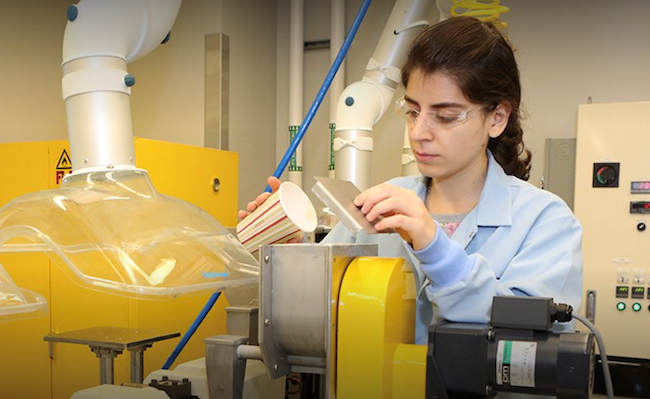Industrial engineering is all about figuring out the most efficient way to complete a process. Industrial engineers devise plans to ensure that all aspects of a process -- people, materials, information, and energy -- are running at an optimal level.
Industrial engineers make a median salary of $88,020, according to the U.S. Bureau of Labor and Statistics. They work on teams responsible for designing, developing, and implementing innovative solutions to help make all aspects of an organization run more efficiently. They work in various sectors including manufacturing, healthcare, and business administration.
While the majority of time may be spent in an office, they often visit the worksites of the facilities they are improving.

Education Requirements
Associate's degree or Postsecondary Certificate
Average Salary
$61k-$73k
Industrial engineering technicians identify issues with production ad design solutions to address these problems. Some of their tasks may include preparing machinery and plans for equipment, conducting studies on statistical production, and analyzing production costs. AS for schooling, and associate's degree or postsecondary certificate is needed to become an industrial engineering technician.

Education Requirements
Bachelor's degree or MBA
Average Salary
$67k
Implementation consultants are responsible for managing the implementation of new services or products, and for the coordination, training, and delivery of high-quality customer service. Their roles can vary depending on the job, and they should have a well-rounded understanding of business strategy, operations, and management. To become an implementation consultant, a person needs to have a bachelors degree, and sometimes a Masters of Business Administration (MBA) is preferred.

Education Requirements
Associate's Degree
Average Salary
$30k-$42k
A manufacturing technician monitors manufacturing plants and factories making sure their quality production standards are up to par. They have knowledge on equipment and machinery and use this to maintain production needs. They also may complete tasks such as keeping production logs and working on the maintenance of equipment. To become a manufacturing technician, a person needs an associate's degree in engineering or manufacturing technology.

Education Requirements
Trade school, Apprenticeship, Licensing
Average Salary
$41k-$68k
Industrial electricians work in places like construction sites, shipyards, and manufacturing plants making sure that the electrical systems are running properly. Some possible tasks may include drawing electrical blueprints, updating electronic controls, installing wiring systems, and consulting the site managers about types of lighting that would be most productive. To become an industrial electrician, you need to complete an electrician training program at a trade school, work as an apprentice for four or five years, and then become licensed.

Education Requirements
Bachelor's or Master's degree
Average Salary
$113k-$164k
A professor specializing in industrial engineering teaches industrial engineering students. They plan lessons, grade assignments, and assist their students in gaining professional experience like internships or placement opportunities. At least a bachelor's or master's degree is needed to become a professor and many times they also have a doctoral degree.

Education Requirements
Bachelor's Degree
Average Salary
$50k-$64k
A supply chain analyst works at each stage of the supply chain, from planning to transporting the goods, and uses reports and data to find out if manufacturing and transportation are working successfully together. this data is then used to help supply chains know how to maximize their process. To become a supply chain analyst, a person needs a bachelor's degree.

Education Requirements
Bachelor's Degree and PE License
Average Salary
$58k-$72k
Plastics engineers develop and test new plastics, also known as polymers, and oversee the development of the materials, molds, and other materials that use plastics. they should have skills like attention to detail and should be knowledgeable about the quality control standards in their field. To become a plastics engineer, a person needs a bachelor's degree and professional engineering (PE) license.
Career salary data provided by: U.S. Bureau of Labor Statistics Occupational Outlook handbook and O*NET OnLine.